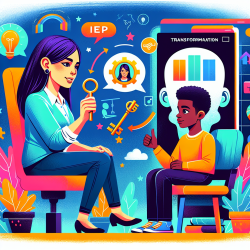Introduction
In today's rapidly evolving world, the importance of ethics and social responsibility in engineering cannot be overstated. A recent longitudinal study, "Measures of Ethics and Social Responsibility Among Undergraduate Engineering Students," sheds light on how engineering students' perceptions of these crucial aspects evolve over their academic journey. As practitioners in the field of online therapy services, understanding these findings can help us improve our approaches to fostering ethical awareness and social responsibility among future engineers.
Key Findings of the Study
The study surveyed undergraduate engineering students at four U.S. universities during their 1st, 5th, and 8th semesters. The researchers aimed to understand changes in students' knowledge and application of ethics, as well as their social consciousness. Here are some key findings:
- Students showed a modest increase in their knowledge of ethics and their ability to apply this knowledge in real-world situations.
- Health and safety considerations were consistently ranked as the highest priority among students.
- Contrary to previous studies, students maintained steady levels of social consciousness throughout their undergraduate studies.
Implications for Practitioners
These findings offer valuable insights for educators and practitioners looking to enhance ethical and social responsibility education in engineering programs. Here are some practical ways to implement these insights:
- Integrate Real-World Scenarios: Incorporate case studies and situational judgment exercises that reflect real-world ethical dilemmas engineers may face. This approach can help students apply theoretical knowledge to practical situations.
- Emphasize Health and Safety: Given that students prioritize health and safety, educators can leverage this interest to introduce broader ethical considerations, such as environmental and social impacts.
- Foster Continuous Engagement: Encourage students to participate in community-based projects and initiatives that promote social responsibility. This engagement can help maintain their interest in public welfare concerns.
Encouraging Further Research
The study's findings highlight the need for ongoing research into how educational interventions can effectively nurture ethical and social responsibility in engineering students. Practitioners are encouraged to explore the following areas:
- Longitudinal Impact Studies: Conduct studies that track students' ethical development beyond their undergraduate years to understand the long-term effects of educational interventions.
- Cross-Disciplinary Approaches: Investigate how insights from other disciplines, such as psychology and sociology, can enhance ethics education in engineering.
- Innovative Pedagogical Techniques: Experiment with new teaching methods, such as gamification and experiential learning, to engage students in ethical discussions.
Conclusion
As practitioners dedicated to improving outcomes for children and young adults, we have a responsibility to equip future engineers with the ethical and social responsibility skills they need to navigate complex challenges. By integrating the findings of this study into our educational practices, we can contribute to the development of engineers who are not only technically proficient but also socially conscious and ethically grounded.
To read the original research paper, please follow this link: Measures of Ethics and Social Responsibility Among Undergraduate Engineering Students: Findings from a Longitudinal Study.










